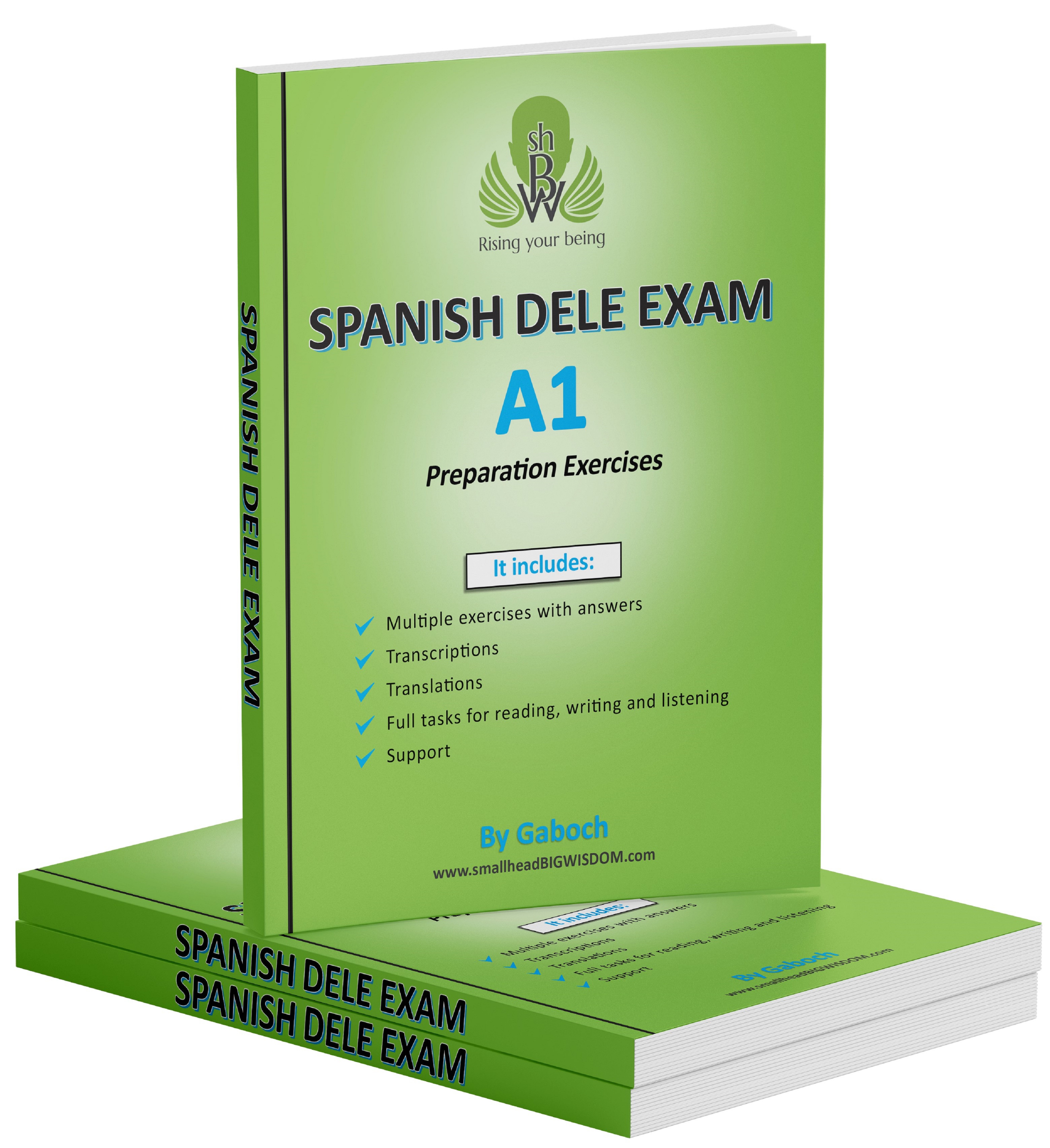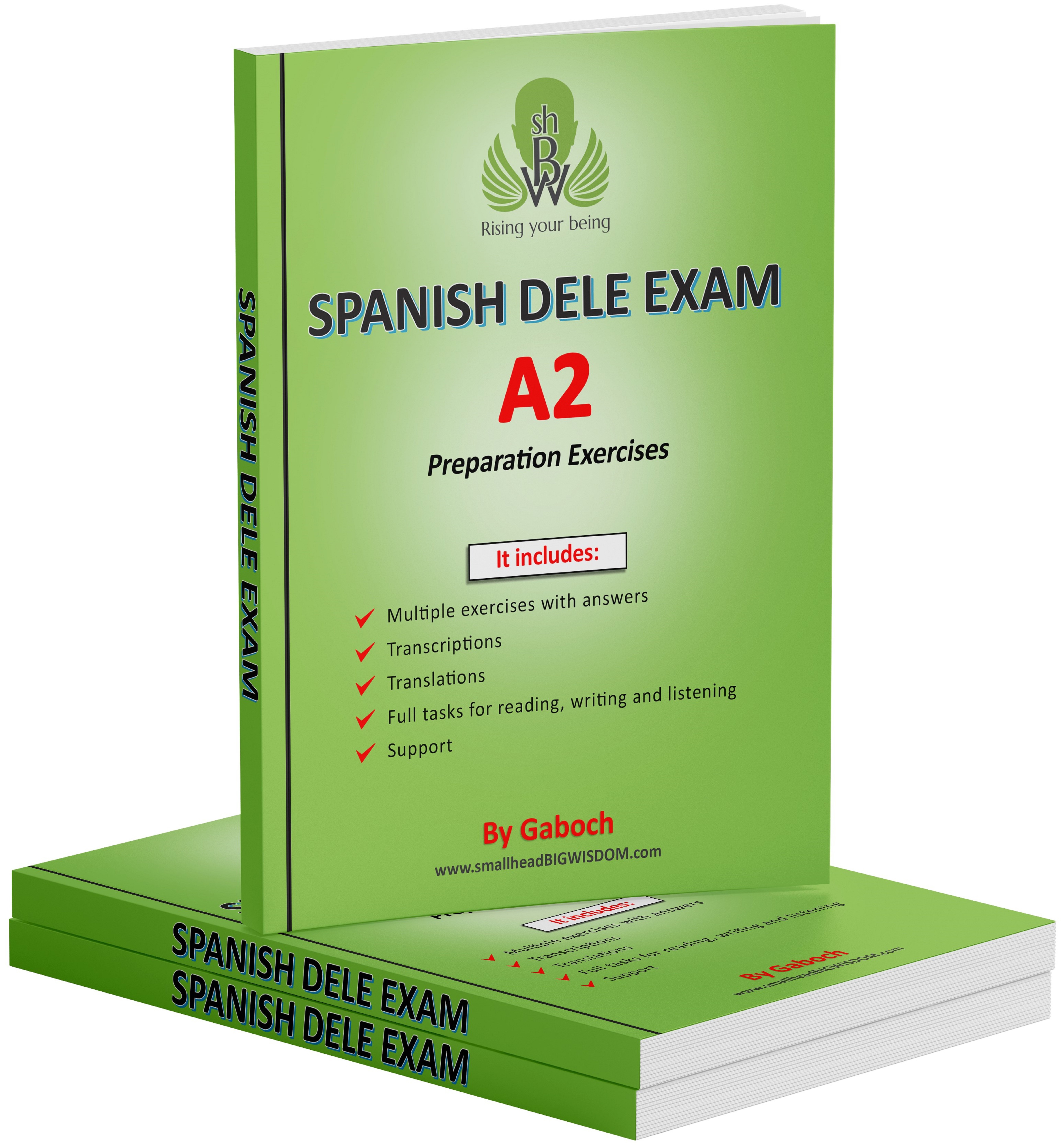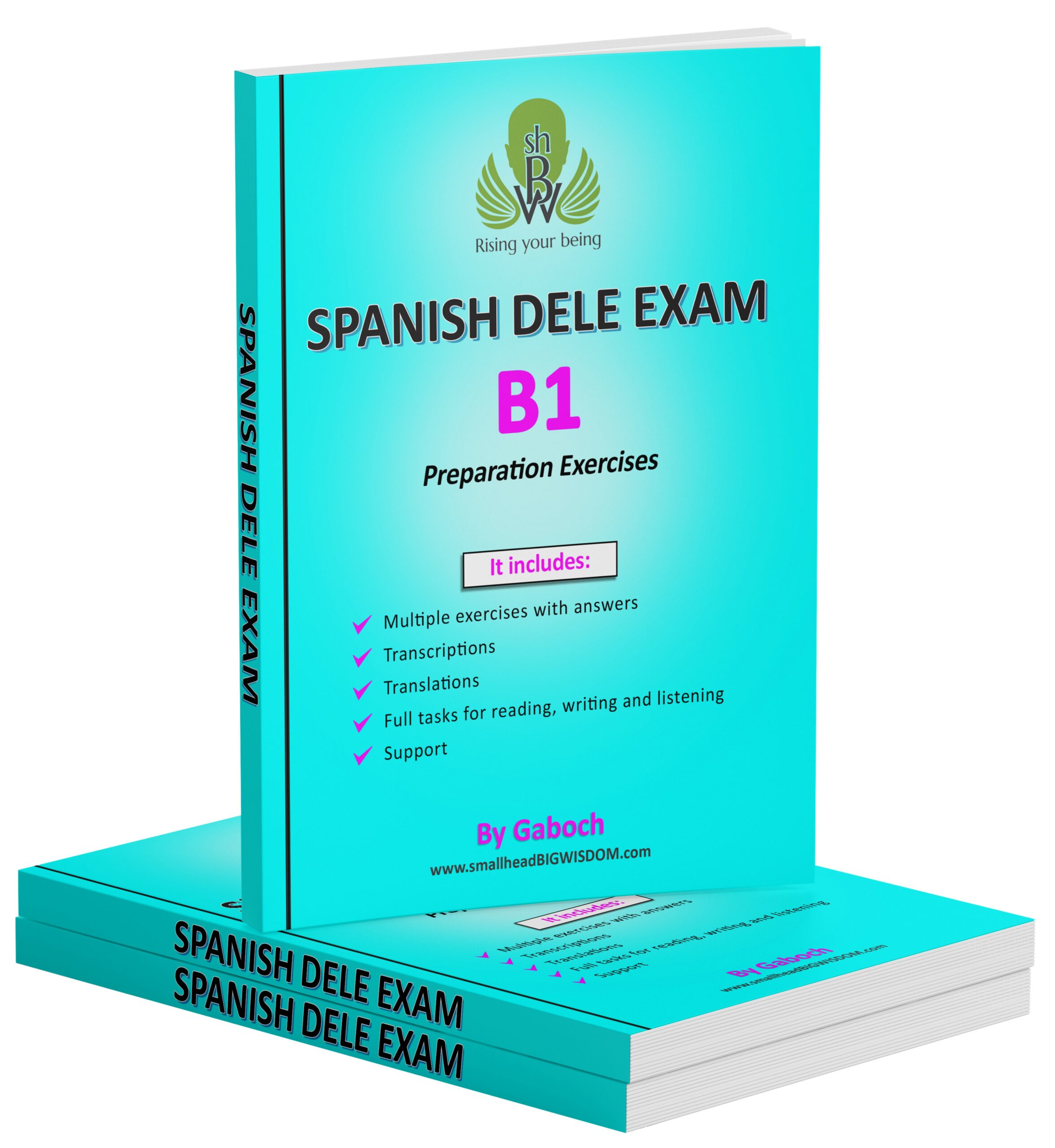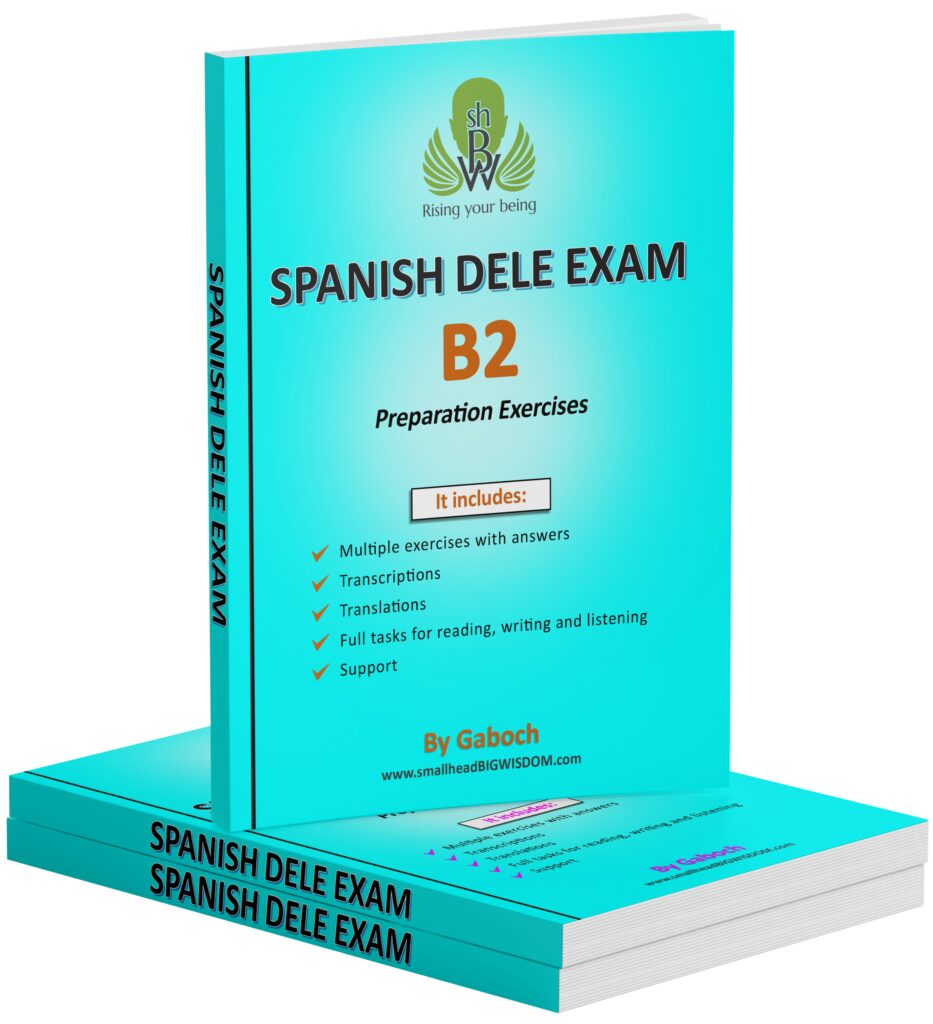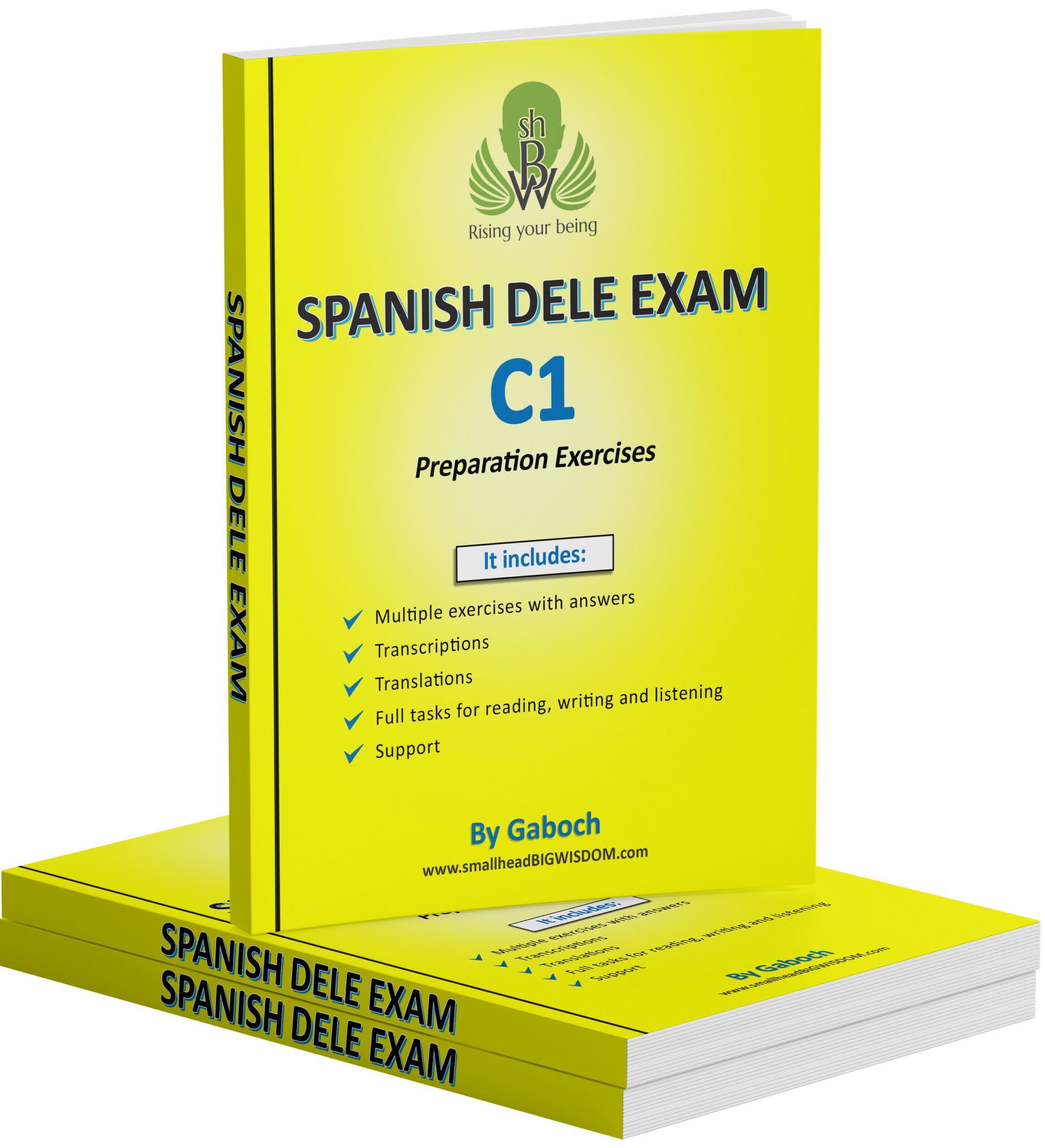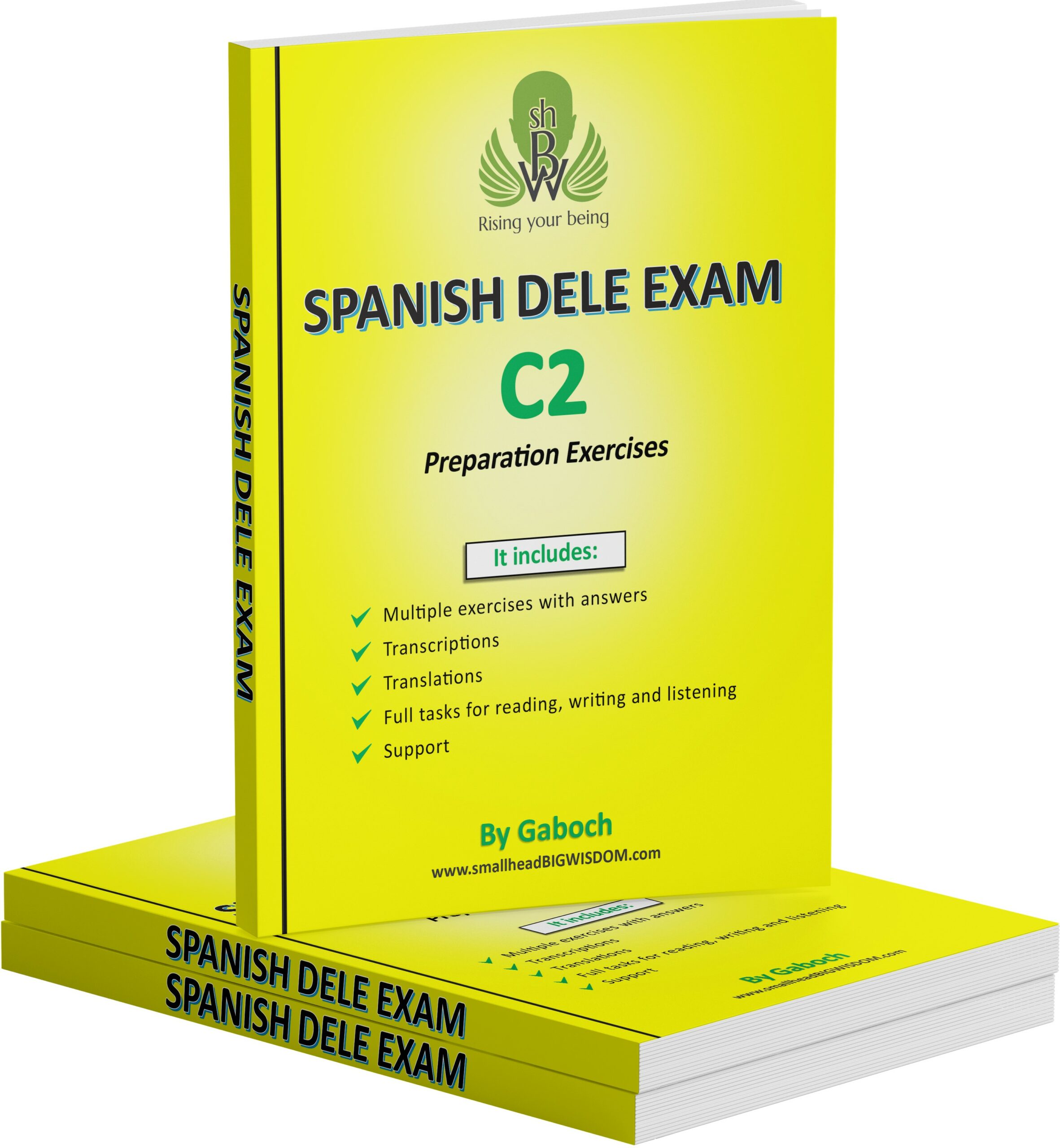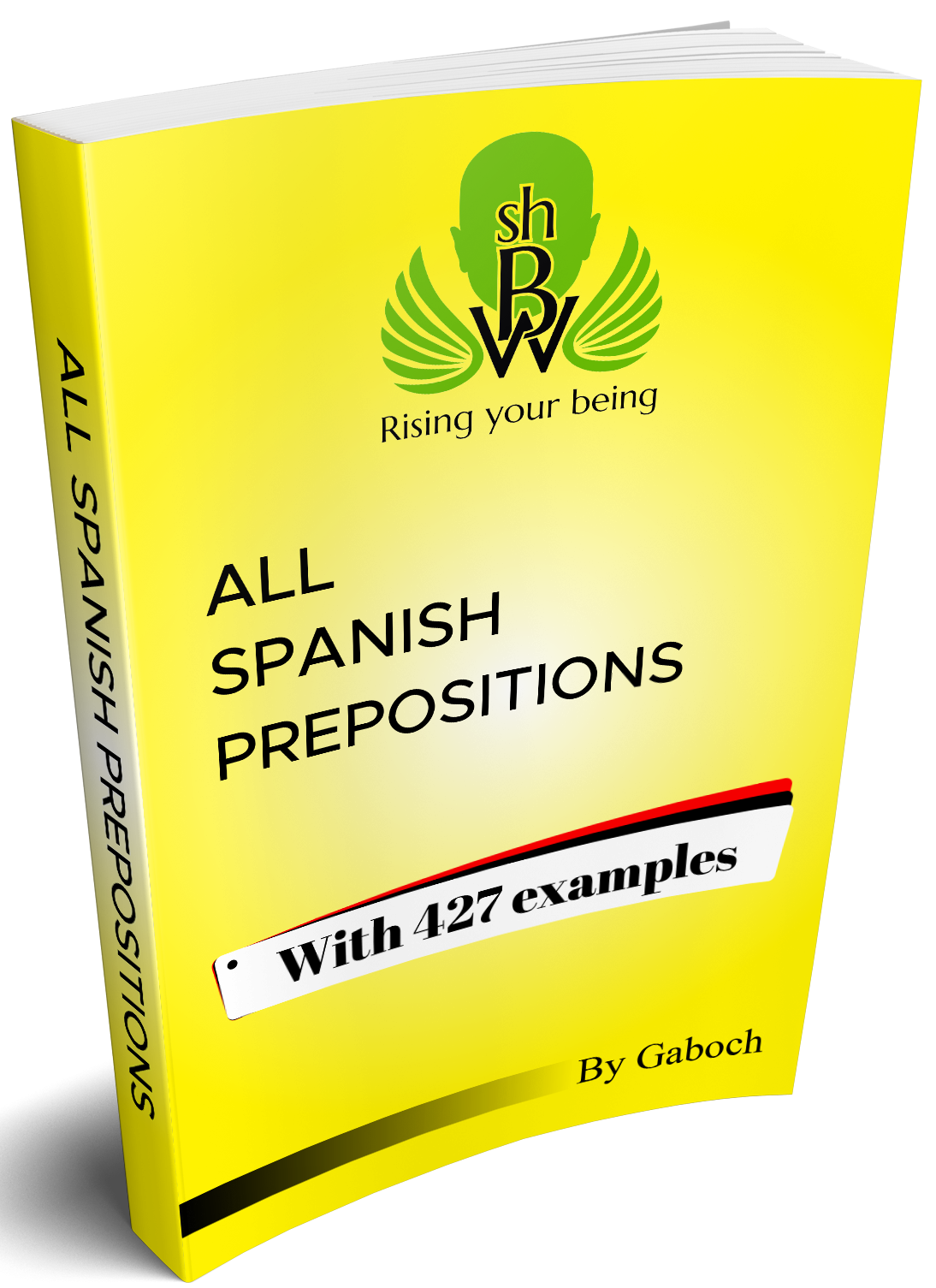smallhead BIGWISDOM
Rising your being
Exercises with Indirect Object Pronouns (IOP)
The Indirect Object Pronouns
The indirect object tells us where the direct object is going and answers the questions To whom? or For whom?
The indirect object pronouns in Spanish are:
- me (to/for me)
- te (to/for you – informal)
- le (to/for him, her, it, or you – formal)
- nos (to/for us)
- os (to/for you all – informal mainly in Spain)
- les (to/for them or you all – formal)
Example1:
Él compró flores para mí (He bought flowers for me).
¿Para quién él compró flores? (For whom did he buy flowers?)
Él me compró flores (He bought me flowers).
Example2:
El profesor escribió un libro para María. (The teacher wrote a book for Maria)
¿Para quién escribió un libro el profesor? (For whom did the teacher write a book?)
El profesor le escribió un libro para ella. (The teacher wrote a book for her)
Other examples:
Note: When there are 2 verbs, the indirect object pronoun is placed either before the first verb or appended to the second verb.
1. Paul compra un regalo para ellas. = Paul les compra un regalo. (Paul buys them a gift.)
2. Ella escribe una carta a sus padres. Ella les escribe una carta. (She writes a letter to her parents = She writes a letter to them.)
3. Ella no trae el desayuno a él. = Ella no le trae el desayuno a él. (She doesn’t bring breakfast to him = She doesn’t bring him breakfast.)
4. La empresa envió la factura a ellos ayer a las 5:30. = La empresa les envió la factura (a ellos ayer a las 5:30). (The company sent them the invoice yesterday at 5:30.)
5. Necesitas dar un regalo a mí. = Necesitas darme un regalo. (You need to give me a gift.)
6. Quiero comprar un sombrero para ti. = Quiero comprarte un sombrero. (I want to buy you a hat.)
7. Juan debe prestar el dinero a nosotros. = Juan debe prestarnos el dinero. (Juan should lend us the money.)
8. María quiere alquilar a Juan el apartamento = María quiere alquilarle el apartamento a Juan or María le quiere alquilar el apartamento a Juan. (María wants to rent Juan the apartment = María wants to rent him the apartment.)
9. Yo leo un libro a mi hermanito = Yo le leo un libro (a mi hermanito). (I read a book to my little brother = I read a book to him.)
10. Ellos envían flores a su abuela = Ellos le envían flores (a su abuela). (They send flowers to their grandmother = They send flowers to her.)
11. Vamos a preparar la cena para nuestros padres = Vamos a prepararles la cena (a nuestros padres). (We are going to cook dinner for our parents = We are going to cook dinner for them.)
12. Ella dará una sorpresa a su mejor amiga = Ella le dará una sorpresa (a su mejor amiga). (She will give a surprise to her best friend = She will give a surprise to her.)
13. El maestro prepara una lección para los estudiantes = El maestro les prepara una lección para los estudiantes. (The teacher prepares a lesson for the students = The teacher prepares a lesson for them.)
14. Él está contando un chiste a sus amigos = Él les está contando un chiste (a sus amigos). (He is telling a joke to his friends = He is telling a joke to them.)
15. Siempre traigo café a mis compañeros de trabajo = Siempre les traigo café (a mis compañeros de trabajao). (I always bring coffee to my colleagues = I always bring coffee to them.)
16. Ellos ofrecen ayuda a los nuevos vecinos = Ellos les ofrecen ayuda (a los nuevos vecinos). (They offer help to the new neighbors = They offer help to them.)
17. Compramos un juguete al bebé = Le compramos un juguete (al bebé). (We bought a toy for the baby = We bought a toy for him.)
18. El camarero sirve la comida a los clientes = El camarero les sirve la comida (a los clientes). (The waiter serves the food to the customers = The waiter serves the food to them.)
19. Necesitas mostrar el documento al gerente = Necesitas mostrarle el documento al gerente or Le necesitas mostrar el documento al gerente. (You need to show the document to the manager = You need to show the document to him.)
20. Escribí una nota de agradecimiento a mi tía = Le escribí una nota de agradecimiento (a mi tía). (I wrote a thank-you note to my aunt = I wrote a thank-you note to her.)
Get the book about 1100 English-Spanish Cognates!
Bonus: Audio pronunciations
Get it now!
(See Table of Content)
